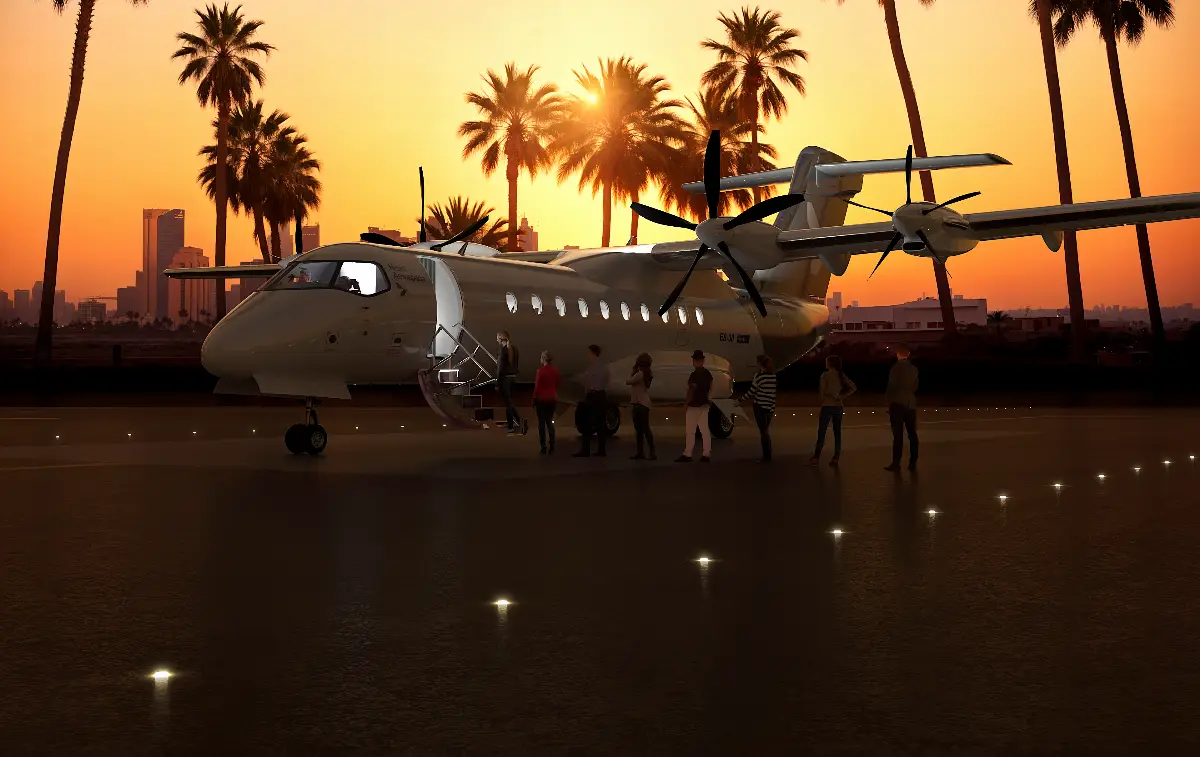
Sweden. Heart Aerospace moves "Planes and Luggage" to California: Trump effect?
Developer of 30-seat hybrid-electric regional airliner closes Swedish operations

Swedish hybrid-electric aircraft manufacturer Heart Aerospace announced today that it is moving its headquarters from Gothenburg, Sweden, to Los Angeles, California. The move is a strategic move -and, Ed.'s note, a reaction to the Trump administration's tariffs policy- the company said in a statement, aiming to strengthen the company's product development in the United States, supporting the upcoming test flights of the Heart X1 prototype and the future Heart X2 prototype. The X1's maiden flight is scheduled for 2025 and "marks a major milestone in Heart's innovation journey, paving the way for the X2".
“Our move to Los Angeles marks a new chapter in Heart Aerospace’s journey of prioritizing iterative development and deeper vertical integration", said Anders Forslund, co-founder and CEO of the start-up. “For the X2, we are developing key technologies such as batteries, actuation systems, software and hybrid-electric hardware in-house. This approach allows us to continually refine and improve our systems, just as we did with the X1 prototype, which has undergone extensive testing and major design updates since its initial launch in 2024".
This transition is supported by strong financial momentum, including a $107 million Series B funding round in 2024 -see details below, Editor's note-, and an additional $40 million investment recently secured. As part of this transition and to better focus its resources, Heart has decided to close its operations in Sweden to allow for further expansion of the US team. "We are grateful for all the support we have received in Sweden", said the CEO. "However, as our customers, partners and investors are increasingly based in the US, we see greater opportunities in focusing our resources here. By consolidating our operations in Los Angeles, we can accelerate development, strengthen collaboration and better position Heart Aerospace for the future".
In addition to its headquarters in Gothenburg, the Swedish company has been operating a research and development center in Los Angeles since May 2024. Founded in 2019 by Anders and Klara Forslund, the company employed around 100 people in 2024. Heart Aerospace is developing the ES-30, a 30-seat hybrid-electric regional airliner designed for greater sustainability and efficiency on short-haul routes. The new aircraft is expected to have a range of 200 kilometers in pure electric mode and 400 km in hybrid mode, significantly reducing CO2 emissions compared to conventional aircraft on similar routes. With a reduced passenger load of 25 people, it could achieve a range of 800 km.
In 2024, Heart Aerospace unveiled its first full-scale demonstrator aircraft, the Heart X1 (Heart Experimental 1). The X1, powered entirely by electricity, is scheduled to make its maiden flight in the second quarter of this year. Following the X1 program, the company plans to build a pre-production prototype, the Heart X2, which will incorporate design refinements based on the X1’s operational experience and feature the company’s hybrid propulsion system, with a hybrid-electric flight demonstration scheduled for 2026.
Who believed in the project...
The company raised $35 million in Series A funding in 2021, led by Breakthrough Energy Ventures, United Airlines Ventures, and Mesa Air Group, with participation from existing early investors EQT Ventures and Lowercarbon Capital. In September 2022, Air Canada and Saab each invested $5 million in Heart Aerospace. At the same time, Air Canada placed a purchase order for 30 ES-30 aircraft.
Last year, the company raised a total of $107 million in Series B funding, bringing its total capital raised to $145 million. New investors included Sagitta Ventures, a Danish early-stage venture capital firm. Returning investors included Air Canada, Breakthrough Energy Ventures, the European Innovation Council Fund, EQT Ventures, Lowercarbon Capital, Norrsken VC, United Airlines, and Y Combinator.
AVIONEWS - World Aeronautical Press Agency